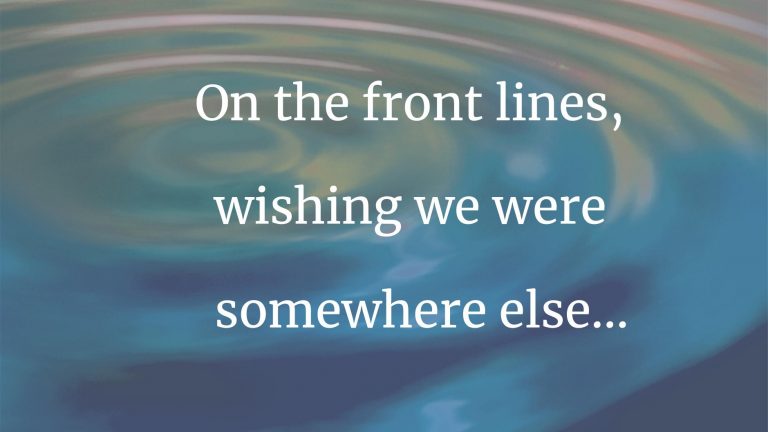
- Home
- /
- mental health professional stories
Tag: mental health professional stories

A Day in the Life of a Psychiatrically Hospitalized Clinician (Part 2)
Editor’s Note: This is the conclusion of Liat Katz’s remarkable story. Part 1 was published last week.
Lying here on this hard bed on the psych floor, staring at the white walls and ceiling, I think of my clients–and I don’t feel so alone. Their everyday experience is not so different from my short-lived experience here at the hospital. Often, they endure a whole day’s wait in the dirty Social Security and social-services offices, only to be treated patronizingly and have their needs go unmet.
A Day in the Life of a Psychiatrically Hospitalized Clinician (Part 1)
Editor’s Note: This week Pulse presents the first installment of Liat Katz’s brave and forthright story. The conclusion will appear next week.
I am a licensed clinical social worker. And, occasionally, a mental patient. Today, in this inpatient psychiatric unit, I am more a patient than a social worker.
It is Monday morning, and I am eating breakfast across from Owen, a muscular, flannel-clad, Paul Bunyan-looking patient. Little pieces of his scrambled eggs keep landing on his copper-colored beard. I sort of want to motion with my hand at where the eggs are on his face, but I’m too tired, and I don’t really care. About anything.
You Have a Split Personality
Raymond Abbott
I am a social worker working with severely mentally ill adults. One of my clients is Lawrence Walters, a small, thin man in his late fifties, very schizophrenic even while on medication. He talks about spirits holding him down, making him do things he doesn’t wish to do. He is impossible when off meds, tolerable when on, and difficult just about all the time. But at last I’ve got an edge on Lawrence–and it’s not because of any particular social-work skill.
Lawrence often asks me to take him places–usually shopping, but sometimes to medical appointments, such as an eye exam. (Lawrence is missing one eye, which some say he himself poked out when especially ill. I can’t confirm this story, however,
Physician’s Exasperation
Howard F. Stein
We know so much about you–
Your blood, your urine, your internal organs.
We can see everything.
There is precious little that
Is not wrong with you medically.
Still, you do not listen to us.
You miss appointments;
You don’t go to referrals we’ve made.
Do you defy us or merely not understand
How dire your condition is?
You could die at any time,
We have told you more than once.
Still, you muddle along as if all we know
Does not matter. Tell me, what
Is missing from our story?
Have we failed to impress upon you
The urgency of the hour? Speak to me.
I will listen now.
About the poet:
Howard Stein PhD, a psychoanalytic and medical anthropologist,
Finding Innisfree
Roger looked up at me over the oxygen mask, his eyes drawn wide by the sores stretching his face. He lifted a hand for me to take.
“I’m glad you’re here,” Jen had said before I’d entered his room. “They’ve taken him off a lot of the medication. He’s very lucid, but he’s depressed and scared.”
The previous fall, Roger and Jen had begun couples therapy with me. They were both thirty-two and had been together for ten years. Three years before they came to me, Roger had been diagnosed with leukemia. A bone-marrow transplant had left him cancer-free, but his prognosis was guarded. He and Jen argued frequently, his desire for independence clashing with her insistence on managing his care.
When they first visited
